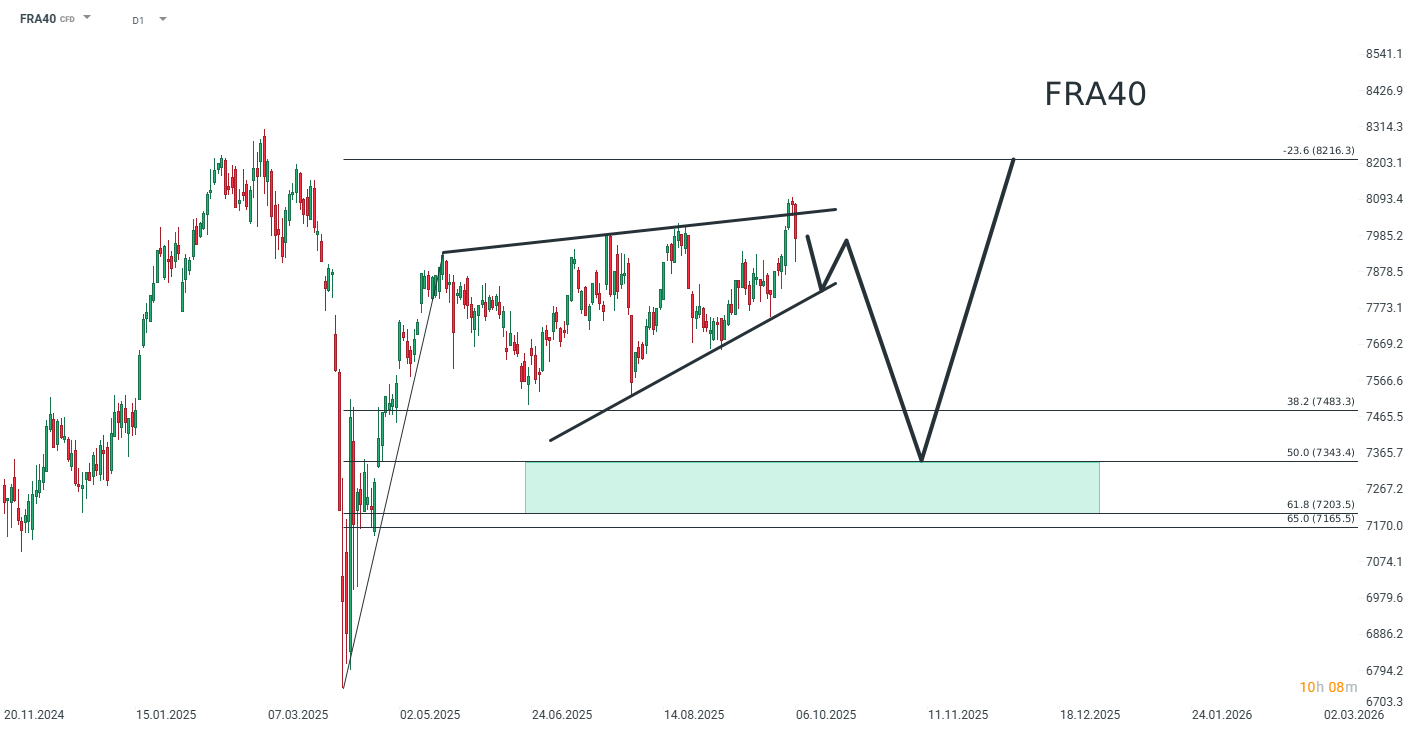-
The resignation of Prime Minister Sébastien Lecornu exposes deep political dysfunction and unprecedented instability in France.
-
France faces a systemic debt risk with €3,345 billion owed, rising interest rates, and a fragile market environment exacerbated by investor distrust.
-
The nation teeters between political paralysis and financial vulnerability, with the credibility of the state and confidence in democracy now at stake.
-
The resignation of Prime Minister Sébastien Lecornu exposes deep political dysfunction and unprecedented instability in France.
-
France faces a systemic debt risk with €3,345 billion owed, rising interest rates, and a fragile market environment exacerbated by investor distrust.
-
The nation teeters between political paralysis and financial vulnerability, with the credibility of the state and confidence in democracy now at stake.
The resignation of Sébastien Lecornu from his position as Prime Minister, accepted this morning by Emmanuel Macron, is not just a routine governmental episode. It signals a deep dysfunction in French political life, an executive branch that is faltering, and a collective confidence that is eroding. In just a few days, the newly appointed government has imploded under the weight of criticism and contradictions.
This sudden departure, at a moment when the country is seeking a clear budgetary and social direction, plunges France into a political instability unprecedented since the start of Emmanuel Macron’s second term. The president now faces a wall: urgently appoint a new Prime Minister, dissolve an already fragmented National Assembly, or assume — at least symbolically — responsibility for the current deadlock.
The consequences are immediate. Ministerial trips are canceled, decisions are suspended, and financial markets, uneasy, are already punishing the situation: the CAC 40 dropped nearly 2% this morning, with French banks on the front line. The executive appears paralyzed, while public opinion watches, weary, a political spectacle that has become almost routine in its permanent crisis.
Tensions on French debt: a systemic risk
France finds itself in a delicate position: high budget deficits, political instability, and growing investor distrust create a toxic cocktail. As of September 2025, public debt reached €3,345 billion, or 114% of GDP, the highest in the eurozone. Deficits remain concerning: 5.8% of GDP in 2024 and 5.4% projected for 2025.
Interest rates have been climbing since 2024: the 10-year government bond rate now stands at 3.60%, a critical barrier that must not be crossed for fear of an attack on French debt. The CAC 40 is also suffering from the tension, despite its internationally oriented components. The French 10-year yield surpasses those of Spain, Portugal, and even Greece; the 30-year yield reaches 4.45%, levels not seen since November 2011. The spread with Germany hits 0.87, a peak since 2012, exacerbated by Fitch’s downgrade of the sovereign rating and persistent political instability. Every government attempting to reduce the deficit has been ousted, raising fears that by 2026-2027, the cost of public debt could exceed the national education budget (€66 billion versus €64 billion).
In this context, caution is essential. Fortunately, the technical market environment remains relatively stable, supported by U.S. indices bolstered by the volatility index (VIX) and a steadily declining dollar. But in the event of a reversal and through contagion effects, the consequences for French financial markets could be catastrophic. This is the pivotal moment investors fear the most.
A political turning point?
Whatever political path is chosen, the conclusion is clear: Sébastien Lecornu’s resignation is no accident, but a symptom of a system at the end of its rope, unable to regenerate except through crisis. Governments fall, majorities crumble, citizens grow disillusioned… France teeters between political paralysis and collective distrust.
Today, it is no longer just the fate of a Prime Minister at stake, but the very credibility of the state and confidence in democracy. Suspended on a presidential decision, the nation finds itself on the edge of a precipice, with debt threatening to turn a political shock into a systemic storm. France, too big to fail, must now prove that it can still stand tall.

Unsurprisingly, markets reflect this tension: the CAC 40 opened down 2%, trapping numerous investors worried about further declines toward 7,360, or even 7,220 points. Source : xStation.
Antoine Andreani, Head of Research at XTB France

BREAKING: Massive increase in US oil reserves!

US OPEN: Blowout Payrolls Signal Slower Path for Rate Cuts?

US jobs data surprises to the upside, and boosts stocks and pushes back Fed rate cut expectations

BREAKING: US100 jumps amid stronger than expected US NFP report
This content has been created by XTB S.A. This service is provided by XTB S.A., with its registered office in Warsaw, at Prosta 67, 00-838 Warsaw, Poland, entered in the register of entrepreneurs of the National Court Register (Krajowy Rejestr Sądowy) conducted by District Court for the Capital City of Warsaw, XII Commercial Division of the National Court Register under KRS number 0000217580, REGON number 015803782 and Tax Identification Number (NIP) 527-24-43-955, with the fully paid up share capital in the amount of PLN 5.869.181,75. XTB S.A. conducts brokerage activities on the basis of the license granted by Polish Securities and Exchange Commission on 8th November 2005 No. DDM-M-4021-57-1/2005 and is supervised by Polish Supervision Authority.


